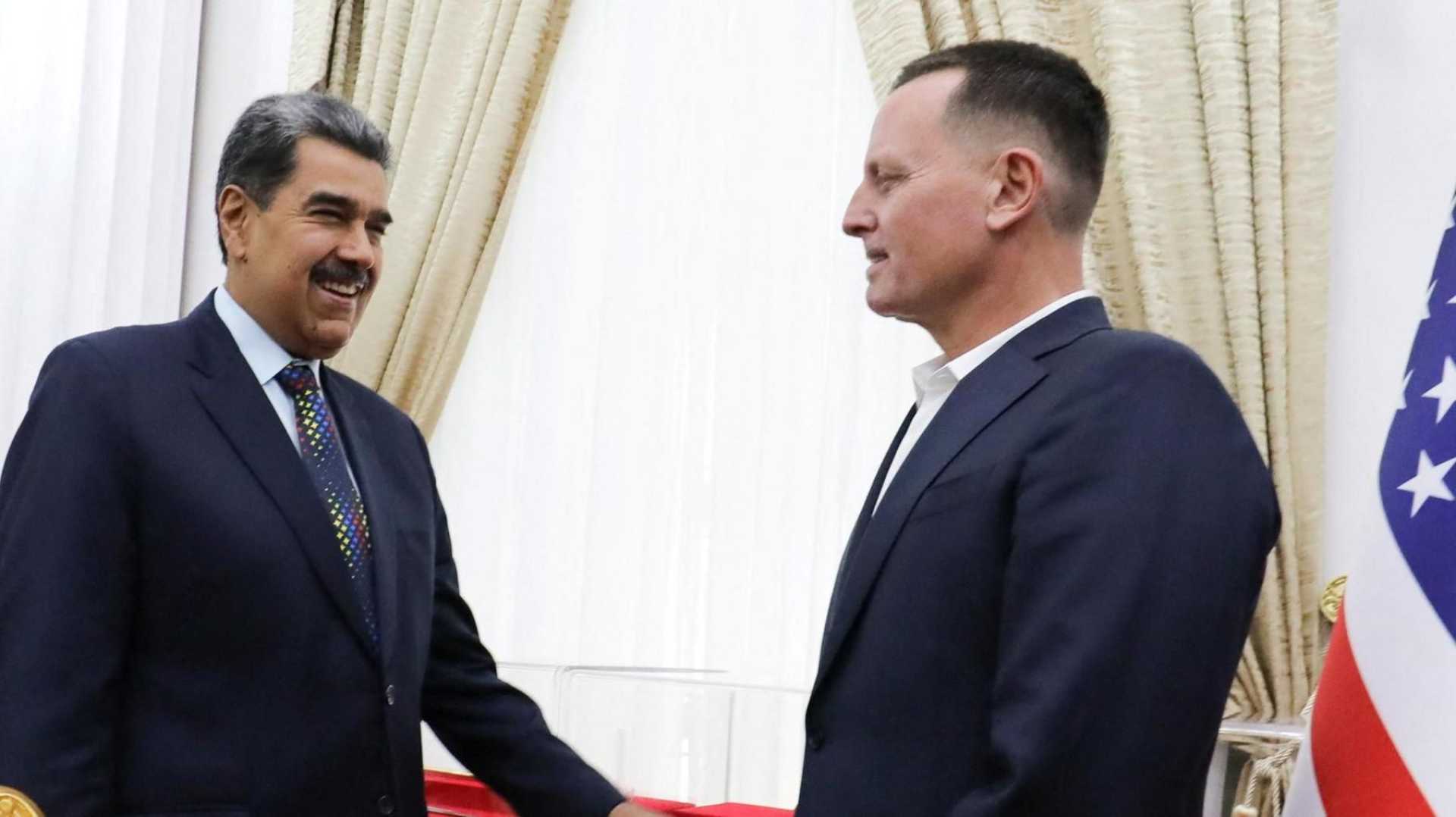Politics
Trump Envoy Secures Release of Six Americans from Venezuela Amid Diplomatic Shifts

CARACAS, Venezuela — Six Americans detained in Venezuela were released by the government of President Nicolás Maduro after a meeting between Maduro and Richard Grenell, a special envoy from the Trump administration, on January 31, 2025. The engagement comes amid a reconfiguration of U.S. diplomatic strategy towards Venezuela, raising questions about the implications of such meetings with the controversial leader.
The release of the six Americans followed Grenell’s discussions focusing not only on their detainment but also on the repatriation of Venezuelan nationals illegally residing in the United States. President Donald Trump announced the release on social media, expressing gratitude for the outcome. Grenell shared on X, formerly Twitter, “We are wheels up and headed home with these 6 American citizens,” alongside a photo of the group aboard their flight.
The meeting took place in Caracas less than a month after Maduro was sworn in for a third six-year term, a result the U.S. and several Western nations contest due to allegations of electoral fraud. Trump’s administration, emphasizing a hardline stance against Maduro, remains skeptical of his legitimacy.
“No. We want to do something with Venezuela. I’ve been a very big opponent of Venezuela and Maduro,” Trump stated in reference to potential criticisms of Grenell’s meeting at a press briefing in the Oval Office. “They’ve treated us not so good, but they’ve treated, more importantly, the Venezuelan people, very badly.”
After Grenell’s departure, Maduro described the meeting as yielding “initial agreements,” although specifics of what was discussed remain unclear. He expressed hopes for a change in bilateral relations, stating, “We want to build relationships of respect for Venezuela’s sovereignty, for Venezuela’s democratic life, for international law.”
Some Republican figures have voiced concerns regarding Grenell’s trip. Elliott Abrams, former special envoy to Venezuela, criticized the timing of the visit, arguing that it could lend undeserved legitimacy to Maduro’s regime. “If the purpose is to deliver a tough message about migration issues, the president could’ve done that himself,” Abrams noted.
Amid ongoing tensions, Venezuelan authorities have detained at least ten Americans linked to alleged plots to destabilize the nation. The specific identities of the six freed individuals remain undisclosed, though reports indicate that David Estrella, who has been missing since September, was among them. Estrella was previously accused by Venezuelan officials of being involved in a plot to assassinate Maduro.
In conjunction with diplomatic discussions, the Trump administration has intensified measures to address immigration issues, with plans to implement the largest mass deportation effort in U.S. history. Recently, Trump rescinded protections for certain Venezuelan immigrants, which had previously shielded roughly 600,000 individuals from deportation.
Greene’s discussions also reportedly focused on securing terms for repatriation flights of Venezuelan nationals and members of the Tren de Aragua gang. “These Venezuelans pose significant threats to our communities,” stated White House press secretary Karoline Leavitt. Grenell has been tasked with ensuring that these repatriation efforts comply with U.S. legal frameworks.
As pressures mount regarding illegal immigration and national security, the Venezuelan migration crisis has escalated. Since 2013, over 7.7 million Venezuelans have fled their homeland due to economic collapse and political instability, seeking refuge primarily in Latin America and the Caribbean but increasingly targeting the U.S. A recent poll indicated that about 25% of the Venezuelan population considered emigration if Maduro remained in power.
Grenell’s historical context in U.S.-Venezuela relations is notable; previous visits aimed at securing American hostages have yielded limited results. Though the recent release marks a rare diplomatic success, analysts remain cautious about its implications for future U.S.-Venezuela relations.
In a broader view, Trump’s administration may find itself navigating complex dynamics involving both repatriation and the ongoing humanitarian crisis in Venezuela while balancing pressure on Maduro’s regime. Diplomats and political analysts alike will be watching closely for the next steps in this evolving diplomatic relationship.












